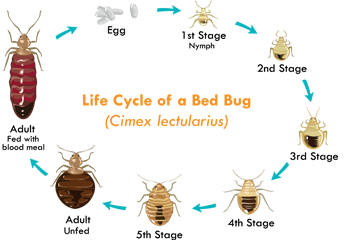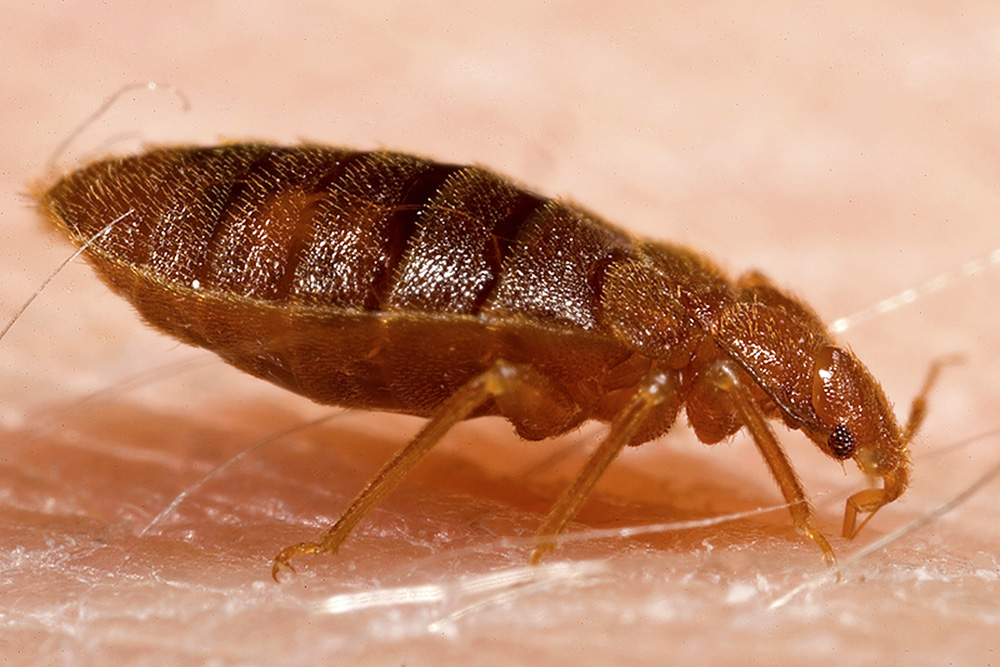Leading Kings Cincinnati Pest Control Services: Pest Control Expert Competence
Leading Kings Cincinnati Pest Control Services: Pest Control Expert Competence
Blog Article
A Breakdown of the Various Kinds of Insect Control Solutions
In the world of insect control, a wide variety of methods exist to deal with the presence and deal with of undesirable animals. From the standard use chemical pesticides to extra cutting-edge biological control remedies, each method offers unique benefits and restrictions. As we browse through the varied landscape of pest control options, understanding the ins and outs of each approach ends up being extremely important in identifying one of the most effective program of activity. Stay tuned as we check out the nuanced globe of pest control techniques and uncover how each type plays a special duty in protecting our atmospheres.
Chemical Pesticides
Chemical chemicals are commonly used in pest control to efficiently eliminate a large range of bugs and other insects. These pesticides work by targeting the nerve system of the insects, disrupting their normal functions, and ultimately leading to their demise. Making use of chemical pesticides has actually been a staple in the parasite control sector for years because of their effectiveness and fast results.

Nevertheless, it is necessary to utilize chemical pesticides with care as a result of their possible hazardous impacts on the setting and non-target species. Incorrect application or overuse of these chemicals can lead to contamination, injury to advantageous bugs, and resistance growth in pest populations. It is vital to adhere to safety and security guidelines and policies when utilizing chemical pesticides for bug control.
Biological Control Approaches
Considering the possible ecological effects and dangers connected with chemical pesticides, biological control methods supply an even more lasting approach to handling bug populaces. Biological control involves using all-natural opponents, such as virus, bloodsuckers, and predators, to subdue bug populations. This approach is commonly much more targeted, affecting just the particular pest varieties while reducing harm to helpful bugs, human beings, and the atmosphere.

One advantage of biological control is its long-term efficiency. As soon as established, natural opponents can assist manage pest populaces continually without the demand for duplicated applications of chemicals. In addition, organic control is usually extra cost-effective and can help reduce pesticide resistance in parasite populaces with time. On the whole, organic control approaches use a ecologically friendly and sustainable solution to pest monitoring.

Mechanical Parasite Control
Mechanical insect control includes the physical control or elimination of insects to handle their populations properly. This method is usually utilized together with other bug control strategies for detailed pest administration. One usual example of mechanical bug control is making use of traps to catch rats or insects. These catches can be set up in calculated areas where pests are understood get more to dwell, aiding to reduce their numbers.
One more mechanical method is making use of obstacles such as fences, screens, or nets to obstruct pests from entering details areas. By literally avoiding parasites from accessing a place, the possibility of invasions or damages can be significantly minimized. Additionally, hands-on techniques like handpicking bugs off plants or frameworks can be efficient for smaller-scale invasions.
While mechanical pest control techniques can be labor-intensive, they supply a non-chemical option that can be lasting and ecologically pleasant. By targeting bugs directly, mechanical control strategies can help keep pest populations in check without counting on pesticides.
Natural Solutions
Making use of all-natural treatments for pest control offers a lasting and environment-friendly method to managing parasite populations without turning to chemical interventions. All-natural treatments involve making use of materials originated from plants, minerals, or other normally occurring resources to prevent or eliminate parasites. For example, planting particular herbs anchor like basil, mint, or lavender around your home can fend off pests because of their strong aromas. Diatomaceous planet, a powder made from fossilized algae, can be utilized to combat parasites like ants, cockroaches, and bed pests by dehydrating their exoskeletons.
Additionally, important oils such as tea tree oil or neem oil have insecticidal buildings that can successfully manage bugs while being safe for the atmosphere. Another all-natural treatment is presenting valuable insects like ladybugs or hoping mantises to your garden to victimize unsafe pests. By incorporating these natural options right into parasite management strategies, individuals can decrease their reliance on synthetic chemicals and promote a healthier, a lot more well balanced ecological community.
Integrated Parasite Management
Integrated Pest Management (IPM) is a comprehensive method that combines various techniques to efficiently control pest populations while minimizing risks to human health and the environment. IPM entails the assimilation of numerous bug control techniques such as biological control, habitat manipulation, alteration of social methods, and making use of resistant crop selections. By making bug exterminator use of a mix of these methods, IPM aims to reduce dependence on chemical pesticides, which can have unfavorable influence on communities and human health.
One trick element of IPM is the emphasis on prevention. By applying procedures to stop insect infestations prior to they happen, such as maintaining correct cleanliness and sealing access points, the demand for responsive pest control actions is lessened. Monitoring and normal evaluations play an essential duty in IPM, enabling early discovery of pest concerns and prompt treatment.
Conclusion
Finally, the different sorts of bug control solutions use a series of alternatives for efficiently taking care of insect problems. Chemical pesticides supply quick elimination yet may have ecological risks. Biological control methods use all-natural predators to manage pests. Mechanical insect control entails physical barriers or catches. Natural treatments offer non-toxic options. Integrated Pest Administration incorporates multiple techniques for an all natural approach to pest control. Each technique has its very own advantages and drawbacks, and selecting one of the most ideal solution depends upon the certain pest problem available.
Chemical pesticides are typically used in insect control to efficiently get rid of a broad variety of bugs and other insects.Mechanical insect control involves the physical manipulation or removal of pests to handle their populaces properly (Kings exterminator cincinnati).Utilizing all-natural solutions for bug control provides a eco-friendly and sustainable strategy to handling insect populations without resorting to chemical treatments.Integrated Insect Management (IPM) is a comprehensive approach that combines various strategies to properly control pest populaces while lessening threats to human health and wellness and the setting.In conclusion, the different kinds of parasite control options provide an array of options for properly handling insect problems
Report this page